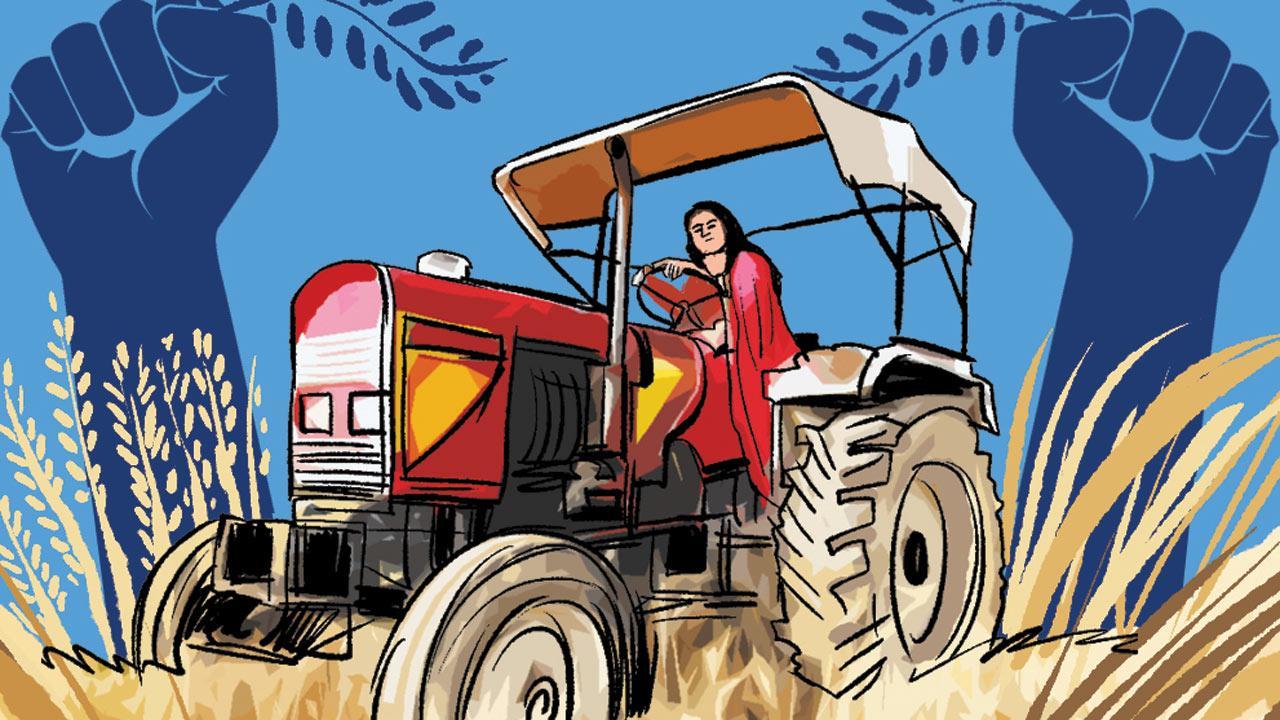It’s that time of the month again.

Illustration/Uday Mohite
![]() It’s that time of the month again.
It’s that time of the month again.
You know, the time when everyone is getting tension because of women. Shivraj Singh Chouhan is getting tension so he wants to raise the minimum age of marriage to 21. If they move out of home for work, they must register at the police station and will be tracked for their own safety. The CJI was also worried about women and suggested they should not be “kept” at the farmers’ protests.
One look at what women are getting up to, and you might see why so much tension is coming. We have seen 62-year-old women driving jeeps and 20-something Poonam Pandit, driving a tractor to the protests (not quite being kept there). Then, there is the sarcasm. Older women mock the country’s leaders in political tappas and bolis. Women, like Kanupriya, first woman president of the Panjab University students council, are speaking with crystalline political complexity. Pandit, also an international shooter, is full of rapidfire, sardonic oratory, (as she says, “mere gale mein Saraswati virajman hai”). In fact, she jokes, it’s the government that’s giving her tension because of farm laws, thereby delaying her marriage, not perhaps what they mean by raising the age of marriage. “Television ka zamana chhod dein, yahan pe aayein, TV-filmon ke liye Kangana Ranaut bahut hai” (one stone so many birds!!). “Gende, cheetah, haathi ki mann ki baat kar rahe hain, who did not understand his wife’s man ki baat, will he understand the hearts of the country’s youth?” It is nani-yaad-diladi type oratory, specifically the sharp tongued nanis of the anti-CAA movement.
Protests have seen significant numbers of women. This poses a challenge to the assumption that ‘general’ politics is a masculine domain, (in which women are being ‘kept’) rather than a shared domain, subtly reinforcing men as decision makers, and invisibilising women at various levels. 73.2 per cent of rural women workers are agricultural workers. They aren’t recognised as farmers because the definition of farmer is linked to possession of land, from which they are often excluded by virtue of gender, caste and class, which further excludes them from schemes such as PM-KISAN.
This kind of women’s precarity rarely seems to give much tension. Concern for women is most quickly expressed in terms of sexuality and marriage. Because that is easily converted into a conversation about how “other” men (other castes and communities) are a danger to “our” (elite, respectable) women. The response is usually to curtail women’s freedoms and increase surveillance, and instate men as saviours and spokespersons.
Raising the age of marriage looks like it’s for women, but leaves untouched the question of women’s autonomy. In fact, often relationships of choice get framed as love jihad or POCSO violations. Representing women not as choosing, but being misled by “other” men, they justify the subjugation of both. Restricting public conversation about women to marriage ensures that their adulthood is seen only in terms of family, not the full spectrum of adult choices, identities and rights.
For laws and policies to better people’s lives, they need to be made in consultation with those people—farmers, women or women farmers—by listening to their mann ki baat as Pandit says. If that gives law makers tension, perhaps it not on behalf of the women.
Paromita Vohra is an award-winning Mumbai-based filmmaker, writer and curator working with fiction and non-fiction. Reach her at paromita.vohra@mid-day.com
 Subscribe today by clicking the link and stay updated with the latest news!" Click here!
Subscribe today by clicking the link and stay updated with the latest news!" Click here!







